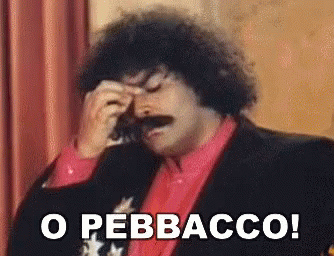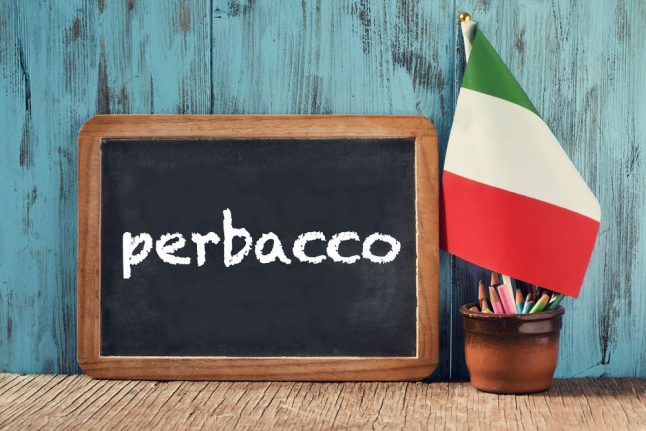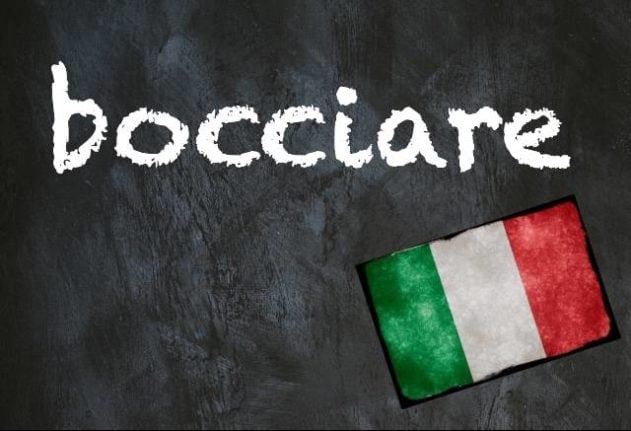Today's word is another request: perbacco, or as our reader Dino wrote in his email, “Perbacco!”
The exclamation mark is practically obligatory, since perbacco(!) is indeed an exclamation, and a great one at that (it's a category Italian excels in: see also mannaggia, accipicchia, accidenti, caspita, ammazza… The list really does go on).
I'll translate this one as 'by Jove', since like that English phrase, it's a somewhat quaint way to express your surprise, delight or irritation by invoking a Roman god.
While Anglophones go for the king of the gods, Italians on the other hand turn to… the god of wine. Perbacco is a contraction of 'per Bacco', or 'by Bacchus', the same god of grapes and drinking that you'll recognize in this well-known painting by Caravaggio. (It's kept in the Uffizi Gallery in Florence, if you want to see it in person.)

Using perbacco is extremely easy: you just exclaim it any time you're mildly perturbed, be it for reasons good or bad.
Perbacco, che fortuna!
Gosh, what luck!
Silenzio, perbacco!
Be quiet, for heavens' sake!
And it's fully family-friendly, so you can use it in front of anyone from your kids to your in-laws to your nonne without fear of giving offence.
If you want to take perbacco to the next level, you can even add the intensifying suffixes ~one ('big') or ~issimo ('very') to give these exaggerated examples listed by the dictionary: per Bacco baccone or per Bacco bacchissimo! Now those deserve at least five exclamation marks.

Do you have a favourite Italian word you'd like us to feature? If so, please email our editor Jessica Phelan with your suggestion.




 Please whitelist us to continue reading.
Please whitelist us to continue reading.
Member comments